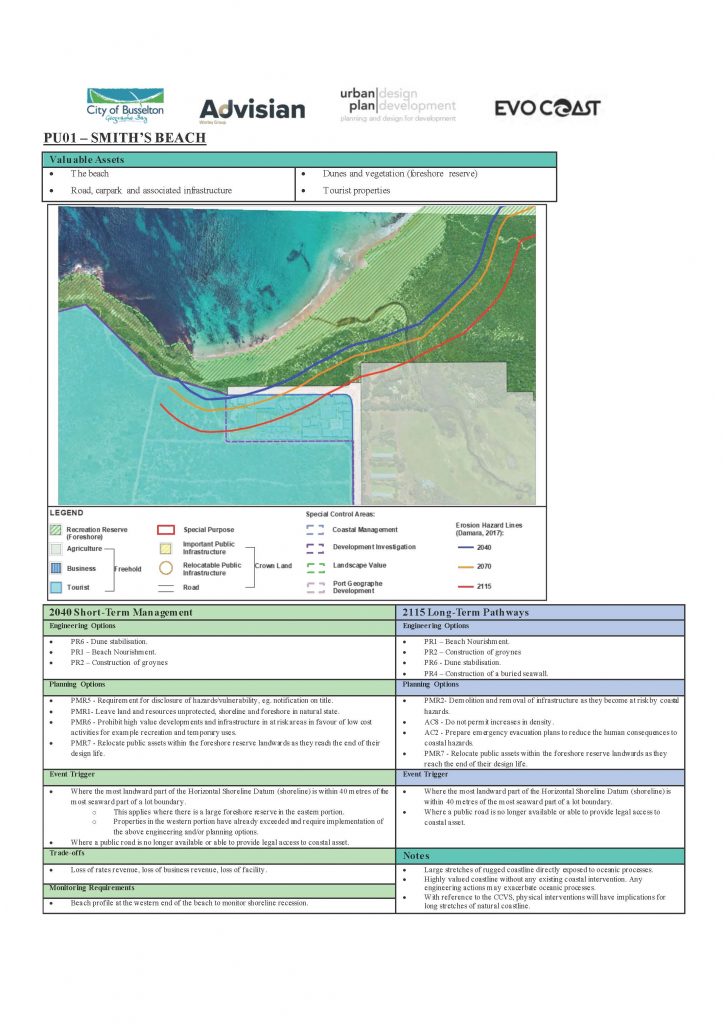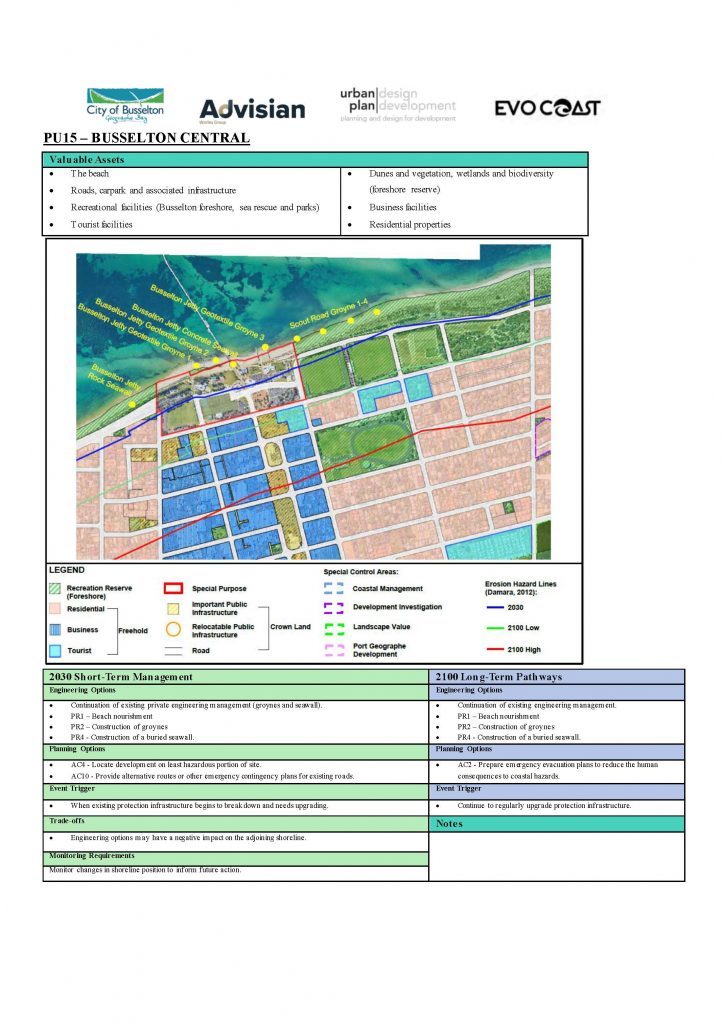City of Busselton Coastal Adaptation Strategy
Compared to other coastal settlements, the nature of the landform and coastline of the City of Busselton is overly exposed to costal erosion processes induced by global warming. The City’s approach to coastal management was benchmarked on devising a series of actions, adapted over time, that were costed to ensure successful implementation; this was key to the study’s success.
urbanplan was involved with a multidisciplinary team that devised Adaptation Pathways, a series of planning short term management actions and longer term strategies to manage costal erosion processes. These actions and strategies comprised planning end engineering interventions with a view to adapting the approach to coastal management as determined by trigger points. The established trigger points determined when adaptation pathways changed due to the increasing impact of coastal processes.
The Busselton Coastal Adaptation Strategy required the identification of these adaptation pathways for defined Planning Units over extended timeframes. Respective planning controls were drafted dependent upon the attributes of the Planning Units. In essence during the short term, dependent upon the coastal conditions, the favoured management action was to apply protection measures; retreat measures with limitations to development are proposed to be phased in toward the longer term to 2100. As coastal processes impact with the passage of time, the financial cost of protecting coastal assets is subject to diminishing returns. Approaching 2100, there is a trigger point when protection of assets is no longer sustainable due to reduced coastal amenity and increased costs to protect urban infrastructure.
Significant to the implementation of successive management strategies was the City’s requirement for an estimated budget to support coastal protection with defined sources of funding.


